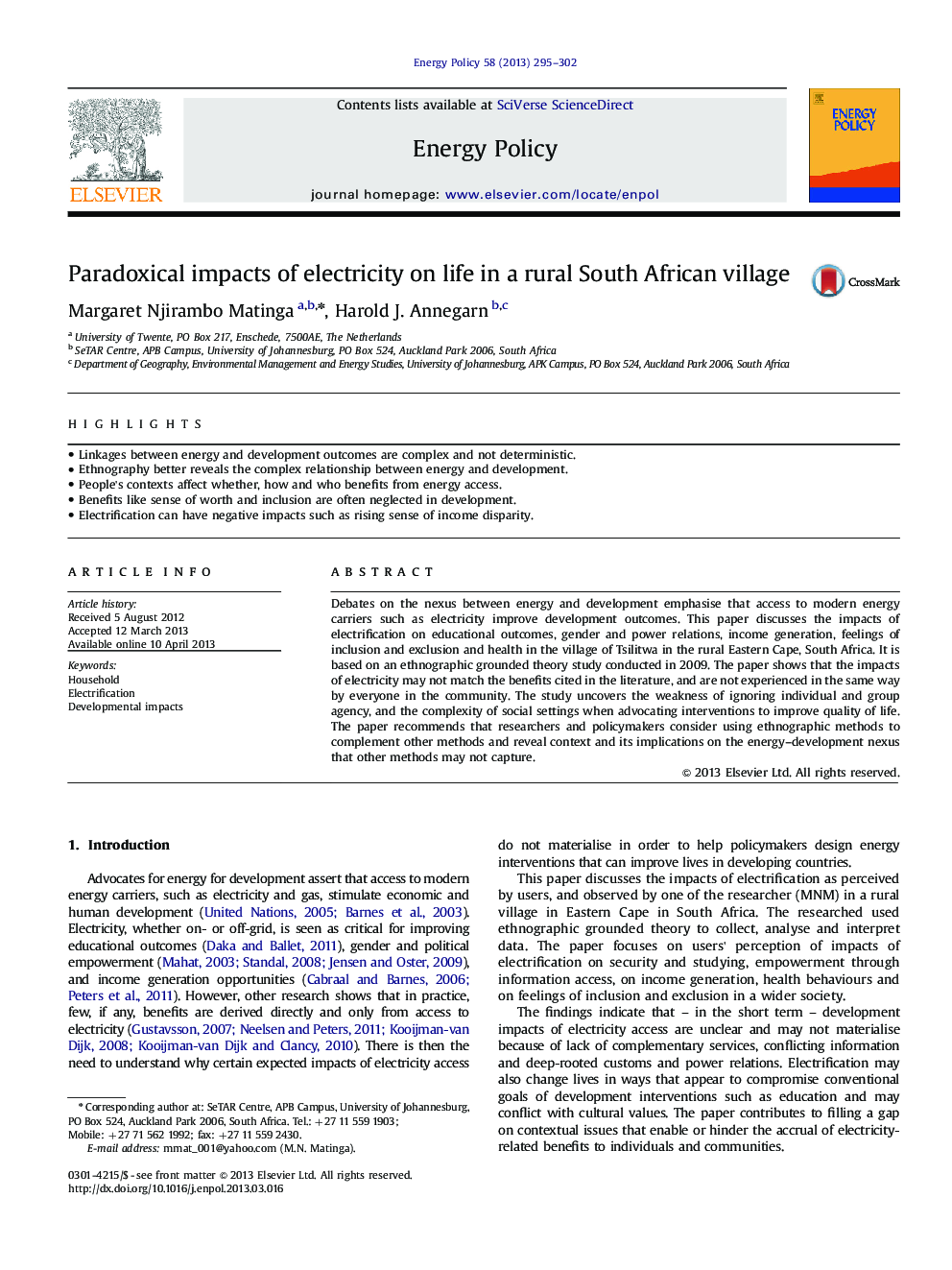| Article ID | Journal | Published Year | Pages | File Type |
|---|---|---|---|---|
| 995551 | Energy Policy | 2013 | 8 Pages |
•Linkages between energy and development outcomes are complex and not deterministic.•Ethnography better reveals the complex relationship between energy and development.•People's contexts affect whether, how and who benefits from energy access.•Benefits like sense of worth and inclusion are often neglected in development.•Electrification can have negative impacts such as rising sense of income disparity.
Debates on the nexus between energy and development emphasise that access to modern energy carriers such as electricity improve development outcomes. This paper discusses the impacts of electrification on educational outcomes, gender and power relations, income generation, feelings of inclusion and exclusion and health in the village of Tsilitwa in the rural Eastern Cape, South Africa. It is based on an ethnographic grounded theory study conducted in 2009. The paper shows that the impacts of electricity may not match the benefits cited in the literature, and are not experienced in the same way by everyone in the community. The study uncovers the weakness of ignoring individual and group agency, and the complexity of social settings when advocating interventions to improve quality of life. The paper recommends that researchers and policymakers consider using ethnographic methods to complement other methods and reveal context and its implications on the energy–development nexus that other methods may not capture.
